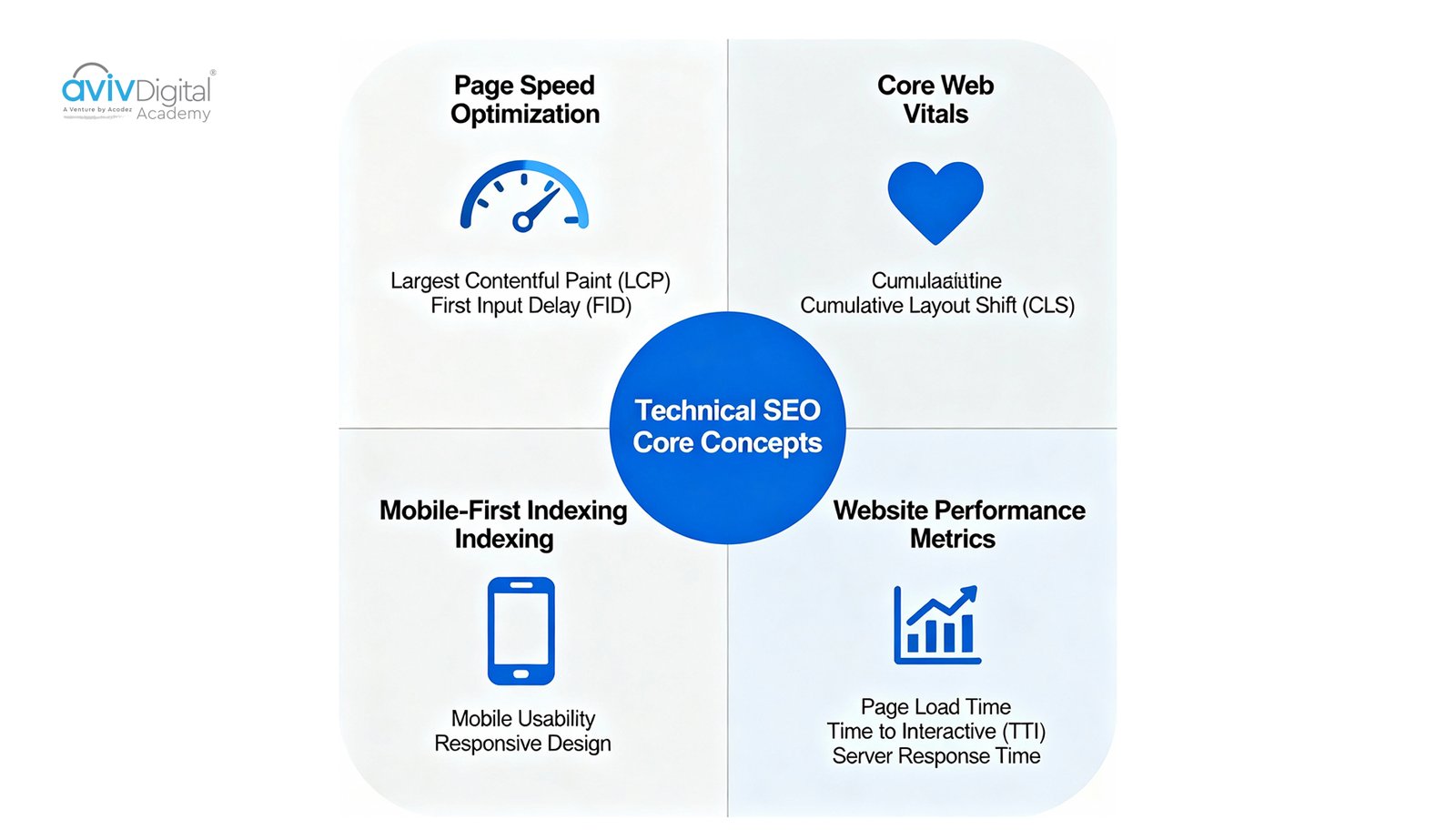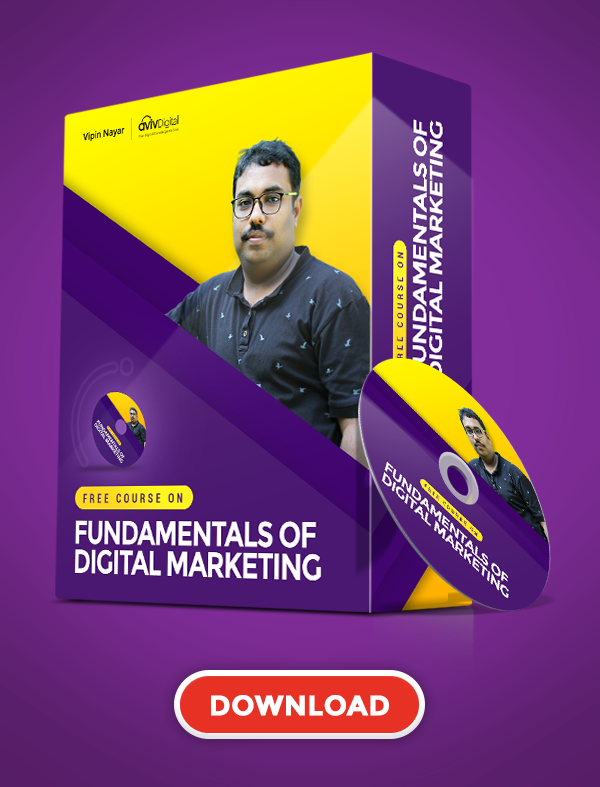
Today’s digital era requires you to adapt and implement effective SEO strategies. This is crucial for any business or individual looking to establish a solid online footprint. Search Engine Optimization now requires skilled labourers to optimise and rank web pages higher in search engine results, thus hiking organic traffic. To do this, professional SEO experts are necessary; if you are one of them, you must prepare well to showcase your skills and knowledge. Knowing SEO interview questions, what to expect, and how to prepare will help you get through the process more efficiently. In this article, let’s uncover the most common SEO interview questions to get recruited confidently. Although it sounds obvious, you might be asked basic questions like what SEO is and why it is important.
Why is SEO so important?
Search Engine Optimization or SEO, is substantial as it increases a website’s visibility. Doing it will ensure more traffic and better recognition as a brand, overall expanding a business’s revenue. Optimising content can help companies to reach their target audience quickly and efficiently. Over 90% of online experiences begin with a search engine. SEO drives over 1,000% more traffic than organic social media. SEO is a crucial skill and role for businesses in the digital marketplace, increasing competition on popular search engines like Google. Companies can use SEO to attract potential customers and boost their sales or conversion rates.
SEO Interview Questions and Answers

These are the most commonly asked SEO Interview Questions. Ensure you answer them quickly and accurately to demonstrate your SEO knowledge. You will be asked questions about On-page, Off-page, and Technical SEO, along with some general questions. Top SEO interview questions include:
On-Page SEO Interview Questions
An on-page SEO strategy optimises content and elements to increase visibility and rank your website higher on search engines.
- What is a keyword, and which are the tools you use for keyword research?
This is one of the most important SEO interview questions. A Keyword is a common phrase used by users in their search queries. It is crucial in SEO because searches match the word from your website, increasing its visibility and ranking. For the second part of the question, You can answer, -“I rely on common keyword tools like Google Keyword Planner, SEMrush, Ahref, and AnswerThePublic for selecting keywords. Using these prominent tools increases the quality of my website.
2. Types of Meta tags in SEO and mention their character limits
Meta titles are mainly of two types in SEO, each with its limits. They are:
- Meta Title: That includes 50-60 characters
- Meta Descriptions: With a limit of around 150-160 characters.
3. What is the significance of a Title Tag on a website? Why do they tend to be essential?
Title tags are the first thing noticed by both users and search engines. They increase the click rate and rank high, making them essential for SEO. Title tags can also increase traffic. They help Search Engines understand the topic of your webpage as well as the name of your brand. A title tag decreases the bounce rate because users know about the webpage’s content.
4. What are rich snippets? Impact of rich snippets on website ranking
Rich snippets give users brief info about their search query with tags, FAQs and reviews. They also hike the click-through rate. For example, if we search for any query, the search engine will present a brief note or result regarding our query, along with the page containing detailed information. Rich snippets are only achieved through a reasonable meta title tag, description, and a few other SEO factors that show the quality of a good SEO website.
5. How Do You Place Target Keywords Strategically Throughout a Blog Post?
You can answer, “To do this, I place keywords in each section of the article, from the Introduction to the body content and conclusion, as well as in image alt text and the website URL, and naturally in the article without stuffing it too much.”
6. Explain the usage of an anchor tag in SEO.
To link one page to another, we use anchor tags. You can turn a text into a clickable link to form an anchor tag. This helps search engines understand the link’s content and makes navigation convenient for users. An Anchor tag could be a text or image and be long-tail keywords or short-tail keywords. Overall, an Anchor tag provides the context of your webpage or Website to the search engines.
Off-Page SEO Interview Questions
- Name different techniques used in off-page SEO.
Regarding Off-page SEO, we use Social media promotion, guest posting, influencer outreach, and brand mentions to increase a website’s traffic for a more technical approach to Off-page SEO. I follow these steps:
- Submitting my webpage to relevant online directories
- Saving my webpage on local bookmarking sites to hike visibility
- Registering businesses on local maps or sites
- Uploading audio, podcasts, and video files with optimised tags for relevance and efficient rankings.
- On top of this, I also participate in forums and include links in relevant threads.
- Differentiate between a do-follow and a no-follow link, and how do you check it?
A do-follow link denotes that the link within a website is valuable and trustworthy, helping to increase the ranking. The term link equity defines this. Meanwhile, a no-follow link needs to pass link equity. A do-follow link from a good-quality webpage grants authority to another, creating a line of security and quality with trust for both websites.
- What are backlinks? What link-building strategies work today?
Backlinks are links from other websites that direct to your website. Backlinks from authoritative and relevant websites indicate that your content is valuable and credible. Effective link-building includes guest blogging, broken link building, high-quality content, digital PR, etc.
- How Do You Measure the Authority of a Website?
I use metrics like Domain Authority, Domain Rating, Page Authority, Trust Flows and Citation Flows. With this, I rely on tools like Ahrefs and Moz Links Explorer domain rating to measure a website’s authority. And do manual steps such as:
- Checking the number of backlinks and whether they make it into a quality link
- Monitor organic traffic, bounce rates and other user engagement metrics.
- Research proficient keywords to check the usage of competitive keywords
5. What factors should be considered when creating an outreach pitch for link building?
While creating an Outreach pitch, I follow essential steps such as:
- A personalised approach is used to research the clients and find common grounds for collaboration.
- Value proposals to convince potential positives we add to each other.
- Only reach out to the relevant page or individual suitable for our web page.
- I also mention our achievements to showcase our credibility and trustworthiness.
- Keeping pitch brief and on point without overwhelming them with info
- Apply proper Call to Action CTA tactics.
Technical SEO Interview Questions

- What is robots.txt?
Robots.txt is a file that directs crawlers or bots to which pages to visit and which pages to avoid. It prevents the search engine crawler(a bot for inspection) from having unwanted information about the webpage or site, reducing the number of requests from search engines to your webpage.
- Explain the importance of site maps and their types.
Sitemaps are mainly of two types: XML and HTML. An XML sitemap lists a website’s pages, ensuring the Google bot can find and crawl the pages of our website smoothly ; meanwhile, an HTML sitemap is a list of all the pages on our website and provides links to them. An HTML sitemap designed to make navigation easier for users or visitors.
- What are Core Web Vitals?
This is one of the most commonly asked SEO interview questions. Core Web Vitals are a set of performance metrics used by Google to measure the real-world user experience on a website. They focus on how quickly it becomes interactive and how stable it is while loading. The three main metrics are Largest Contentful Paint (LCP), Interaction to Next Paint(INP) and Cumulative Layout Shift (CLS).
4. What Is Page Speed and Why Is It Important? What methods would you apply to decrease the loading time of a website?
Page speed is the time it takes for a website or web page to load its entire content to the browser when the user clicks on it. Page speed is part of a ‘core web vital’. It is measured in seconds and is dependent on numerous factors, like the size of the elements on the page, the speed of the web server and operating system, along with the browser. Page speed enhances the user experience and boosts SEO rankings. To improve website page speed, compress images, use caching, minimise JS/CSS, and optimise the hosting for less loading time. Bounce rate is a metric that denotes users backing off your webpage for several reasons. Low speed could be one reason, and my techniques will decrease the bounce rate of the website I work on.
5. What is a canonical tag, and when should it be used?
This SEO interview question is designed to test your technical understanding. A canonical tag is an HTML code used to tell search engines which version of a webpage is primary when multiple similar URLs exist. It should be used when the same or similar content is accessible through multiple URLs. Canonical tags make sure the web crawlers index the right page.
Local SEO Interview Questions
- What is local SEO?
Local SEO is the process of optimizing the online presence of a business so that it appears on location-based search results, such as “near me” or searches with city names. This technique is used to attract customers from nearby areas to the physical stores.
- What is Google Business Profile?
It is a free tool provided by Google that allows businesses to manage how they appear in local search results and Google Maps. It includes all the basic details of a store, including contact information, working hours, reviews, services and photos.
- What are local citations?
Local citations are the online mentions of a business’s name, address and phone number (NAP) on third-party websites such as directories, local listings and review platforms. Consistent citation throughout these websites will help search engines verify the information and improve local rankings.
- What businesses should use local SEO?
Local SEO is most useful for businesses that want to reach to customers in a specific location. Businesses with physical stores, such as restaurants, retail stores, service providers and any other businesses that depend on nearby customers, can benefit from local SEO
General SEO interview questions
- What’s the difference Between On-Page and Off-Page SEO?
This is one of the most important SEO interview questions. You can choose to answer this briefly or in detail depending on the expectations of the interviewer. On-page SEO optimises the site, including its elements and content, while Off-page SEO relies on external optimisation methods, such as link-building. In detail:
- On-page SEO: Focuses on the quality of content, usage of keywords, the structure of the page URL, its metadata, user experience and technical aspects like page speed and everything we need by doing it on the webpage itself
- Off-Page: refers to the optimisation process done outside the website to establish authority relevance and rank them higher. The off-page SEO process includes link-building social media promotions, influencer outreach and brand mentions. SEO also depends on external factors such as backlinks from other websites getting validation from external websites.
- What are AI Overviews and AI citations?
AI overviews are the AI generated summary of search queries that appear at the top of certain Google search results. They provide quick answers by combining information from multiple sources. AI citations are the links and sources that Google refers to in AI overviews. These citations indicate that the information is taken from credible sources.
- What Appeals to You About Starting a Career in SEO?
You can answer by saying, “What I find attractive about SEO is the combination of creativity and analytical reasoning it involves. I’m intrigued by how enhancing both the content and technical elements of a site can have an effect on its visibility and traffic. The evolving nature of SEO and the chance to continuously learn and adjust to algorithms excites me. I’m also deeply passionate about aiding businesses in expanding by linking them with the audience through search engines. It appears like a profession where I could create a difference while constantly pushing myself to evolve.”
- How Do You Stay Updated with the Latest SEO Trends and Algorithm Modifications?
To stay updated with the latest SEO workshops to keep up with the latest trends, updates, and changes. I also focus on tools and their competitors to understand any new changes implemented in the SEO world and the tools accordingly. I want to learn new things and enrich myself with specific roles and responsibilities.
5. What actions would you take in case of a traffic drop?
To encounter a traffic drop, I check for penalties, try to find technical issues and recent changes, plan strategically by monitoring competitor activity, enhance performance by reducing unwanted keywords, and measure its rankings, conversation rates, and user engagement. I also use tools such as Google Analytics, Search Console by Google, Ahrefs and a few others to actively monitor webpage performance and take necessary actions in case of low performance.
Additionally, be prepared to provide examples of successful SEO campaigns you have worked on. Finally, be prepared to explain how you would approach an SEO strategy.
What to expect in an SEO Interview?
Understanding SEO interview questions isn’t enough to get recruited, as getting a Job as an SEO requires much more than that. Take a look at what to expect in an SEO interview.
- Practical tests: to put your answers into practice, you must complete specific tests to demonstrate your abilities. This includes auditing a website, analysing data or making an SEO strategy.
- Tool knowledge: As mentioned earlier, awareness of fine SEO tools is necessary for a good SEO expert; therefore, you will be required to display your skills on tools like Google Analytics, Ahref, SEMrush and Search Console
- Problem-solving: In this session of an SEO interview, you will be challenged to find solutions to any problems. Like quick traffic loss or troubleshooting
How to prepare for SEO Interviews?
It’s okay to feel overwhelmed before an SEO Interview, especially when wondering how to prepare for one. What are some SEO interview questions and answers? Follow the steps below to stay confident.
- Polish the basics: Review your knowledge of SEO, especially keyword research, meta tags, backlinks, and page speed.
- Expertise with tools: To confidently face the questions from an Analytical background, make sure you are experienced with tools like Google Analytics, Ahrefs, SEMrush and a few others to showcase your expertise
- Study the company: This only feels a little, but understanding the company would give you insights into your potential role and responsibility and their website. By doing this, you can suggest improvements highlighting your skill.
- Be aware of the recent trends: Follow trends and new changes in the SEO world, as you might face questions out of the blue in SEO interviews.
- Practice problem-solving: Find solutions to problems to improve your chances of getting hired or improving as an SEO expert. Remember to focus on real-life issues to increase your chances.
How AI is Transforming SEO and What It Means for Your Career

Artificial Intelligence has become the defining force reshaping search engine optimization. From AI-generated content to machine learning algorithms that power search rankings, understanding AI’s impact on SEO is essential for any SEO professional. A key development in this transformation is AI-generated Content. Google’s algorithms now prioritize content that demonstrates Experience, Expertise, Authoritativeness, and Trustworthiness (E-E-A-T).
While AI tools can generate first drafts and help with brainstorming, successful SEO professionals understand that AI-generated content requires human refinement.
Another major shift involves how search results are displayed. One of the most significant developments in 2025 is the prominence of AI Overviews (AIOs) in Google search results. These contribute to zero-click searches – where over 50% of searches result in users finding answers directly on the search results page.This emphasizes the importance of addressing user intent comprehensively rather than focusing narrowly on keyword matching. The job market reflects AI’s central role in modern SEO. AI-related skill requirements in SEO job postings have increased by 21% in recent years.
Conclusion
In Summary, cracking an SEO interview is simple; you do not have to worry about getting a job if you are well-prepared. These questions for SEO interviews not only showcase your knowledge but also enhance your skills as an SEO expert. Follow the steps mentioned above on how to prepare and what to expect. Connect with expert SEOs and learn from them, get advice from them, or collaborate on projects. Do your research and explore to grow even better as an SEO expert.
Aviv Digital is one of the leading Digital marketing course in calicut. We offer a wide variety of globally recognized certification programs that include SEO, SEM, SMM, Email Marketing and Inbound Marketing courses. For more details, Contact us at: +91 8156998844
FAQ
1: What should I do if I don’t know the answer to a technical SEO question during an interview?
Honesty and problem-solving skills are more valuable than pretending to know everything. The best approach is to acknowledge that you don’t know the specific answer, but then demonstrate your problem-solving process.According to experienced SEO professionals on Reddit, interviewers appreciate candidates who show intellectual honesty and resourcefulness.
2: How can I transition from PPC to SEO with limited SEO experience?
Transitioning from PPC to SEO is more feasible than many people think because these disciplines share significant overlap. Both require strong keyword research skills, understanding search intent, data analysis capabilities, and familiarity with Google’s ecosystem.
3: Should I focus on getting certifications before applying for SEO positions?
While SEO certifications can be helpful, they’re not always essential, especially for entry-level positions. What matters more is demonstrable knowledge and practical experience. However, certifications can provide several benefits. They offer structured learning paths, help you learn SEO terminology systematically, demonstrate commitment to professional development, and can help you stand out among candidates with similar experience levels.







